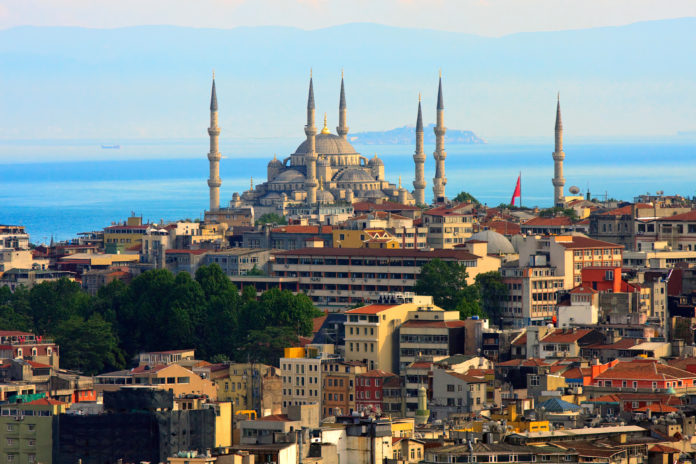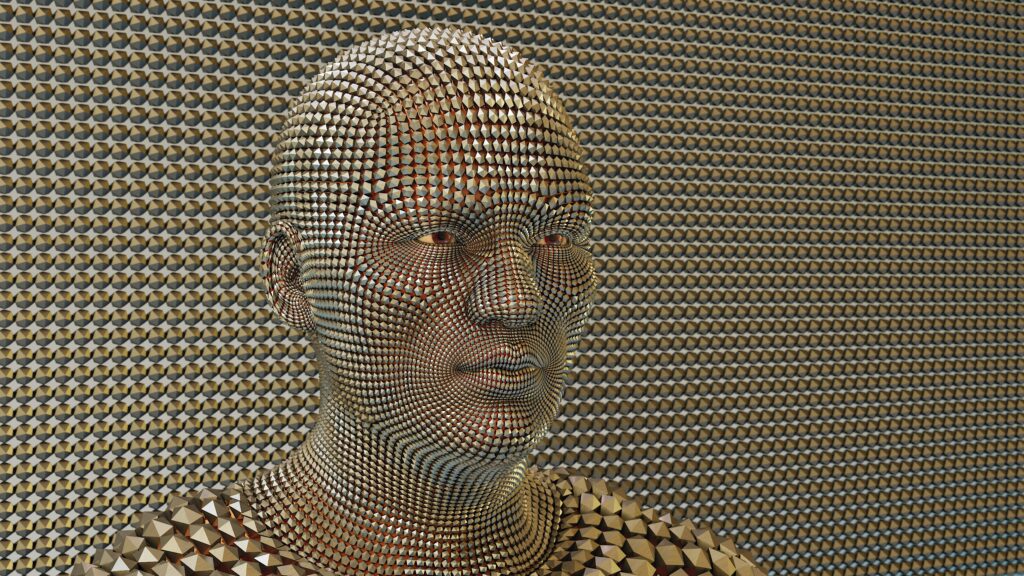Blogger Najm Al-Din outlines five reasons why the re-establishment of the Khilafa will benefit Muslims and non-Muslims around the world alike.
This year’s Ramadan coincides with a poignant memory which sits like a festering wound on the Muslim conscience.
March 2024 marks a century since the inglorious demise of Ottoman rule, by decree of the Grand National Assembly of Turkey.
For millions of Muslims around the world, the collapse of the Ottoman Caliphate is not just another historical chapter in the rise and fall of empires.
Rather, the formal abolishment of the Sultanate deprived the Muslim world of a unifying political leadership that was entrusted with implementing the divine rules of Islam.
While this explains the nostalgic yearning for the Khilafah in the hearts and minds of the Ummah, the benefits of restoring the Caliphate upon the prophetic methodology will not be exclusive to Muslims alone. Rather, it will herald a transformative new era in modern civilisation.
So below I will outline five reasons why the Caliphate should be restored.
Subscribe to our newsletter and stay updated on the latest news and updates from around the Muslim world!
Reason 1: Establishing God’s sovereignty
When former Downing Street spin doctor Alistair Campbell once told a journalist “We don’t do God,” his aphorism epitomised a post-enlightenment outlook common to many public servants who circumscribe religious teachings to the private sphere.
This indifference to faith amongst Western ruling classes dates back to Europe’s medieval era, when stifling restrictions imposed on the public by a Catholic status quo preceded a divorce between the Church and state, foreshadowing the continent’s increasing secularisation and waning spirituality.
In contrast, contemporaneous Muslim societies rarely experienced this fractious relationship, with Quranic dictums informing the momentous political debates of the time.
Unlike the dogmatic Christian theocracies which birthed Europe’s Dark Age, the Golden Age of Islam materialised under the auspices of previous Caliphates which governed in conformity with the substantive norms of revelation and where various domains of human knowledge flourished to leave an indelible mark on civilisation, forming a continuum between the classical world and the Renaissance.
During this period, Islamic law was the nucleus for a pluralistic free market of ideas and the ulama (scholars) and Caliphs adhered to a theoretical framework in which the former wielded soft power by serving as a meaningful check on the limits of executive power.
With the rise of secular liberal democracies, political parties which were once inspired by the Tocquevillian understanding of faith being a crucial moderating force in governance have all but written God’s obituary by conferring sovereignty to man and converting politics into an idolatrous platform.
But the re-emergence of a Caliphate can assuage the intuitive Western scepticism around religion’s role in politics, by demonstrating how governments effectively function without a sacred-secular distinction and when anchored to an absolute morality, administered by an officialdom which embodies the humility, compassion and justice that stems from our awareness of God’s presence in this world.
This becomes more urgent in light of the increasingly unhinged nature of the rules based order, highlighted by the unconscionable support for Israel’s genocide by morally bankrupt politicians whose selective humanity has been laid bare.
With the traditional norms sustaining democracies fraying beyond repair and modern political systems bereft of a higher calling, the Caliphate will impart a new moral orientation to political discourse, elevating polities through the tangible and intangible influences of organised religion.
Reason 2: Restoring traditional values
As governments legislate in favour of LGBT rights and Fortune 500 companies sponsor transgender projects under the banner of diversity, much of the world is in the clutches of a radical left hell-bent on redefining the gender paradigm.
Following the legalisation of abortion, introduction of the birth control pill and sanctioning of same sex-unions, the combined cultural forces of individualism, moral relativism and feminism continue to militate against social conservatism in Western societies.

While orthodox Muslims have resisted the pernicious liberal obsession with normalising gender fluidity inside schools, the last bastions of traditionalism in the West are being outmanoeuvred at every step by the left, whose access to funding has catapulted LGBT rights to the top of the social justice agenda.
A Khilafah will be a guarantor for the rights of communities repulsed by the moral regressions promoted in the new sexual revolution by building the legal architecture which protects institutions like the traditional nuclear family and marriage which have formed the bedrock of human civilisation since the dawn of mankind.
With a transnational network of governments, corporations and billionaire philanthropists rapidly integrating LGBT concerns into global development agendas, a Caliphate will represent a formidable bulwark against the woke juggernaut which seeks to undo social mores and institutions that have been uniformly practised by civilisations across a millennia of human experience.
Reason 3: Banning usury
As Islam views money as a medium of exchange and not a commodity, Shari’ah law prohibits usurious transactions.
Unlike the capitalist system where interest-based loans keep entire nation states saddled with debt, Islamic finance places ethical limits on exchange to establish justice between financiers and borrowers and prevent exploitative contracts which enrich rapacious lenders.
By removing financial resources from interest-bearing accounts, a Caliphate upholding the Islamic proscription of usury can redefine our relationship with money and induce seismic changes to current market forces.
Uprooting interest from the economic system will liberate underdeveloped nations in the Global South from the shackles of debt servicing obligations which impoverish populations, create huge fiscal imbalances and cede much sovereignty to predatory lending institutions like the IMF and World Bank.
Furthermore, it may arouse curiosity for anyone begrudgingly accepting loans to maintain a decent standard of living to explore how Islamic contractual agreements like mudarabah and musharaka can stimulate investment, increase productivity and generate shared profits where both the acumen of lenders and experience of entrepreneurs are harnessed for a common good.
From undergraduates burdened by student loan debt to mortgage holders struggling to scale the property ladder due to interest rate hikes, an interest-free economy where central banks no longer dictate the terms and conditions of our financial security will appeal to millions in bondage under capitalist economies.
While Islamic Banking has already made inroads in the West, questions remain over its “shari’ah-compliant” nature. Nonetheless, an interest free culture is conceivable under Islamic governance which can provide a blueprint for a sustainable global economy through a root and branch overhaul of the present international monetary system that is only geared towards privatising profits and socialising losses.
Reason 4: Eradicating transhumanism
With the Fourth Industrial Revolution underway, powerful stakeholders steering this transition claim that thebreakthroughs in Artificial Intelligence and quantum computing will no longer be relegated to the physical world around us.
Rather, they will become extensions of ourselves, shifting the calculus on what it means to be human in an increasingly transhumanist future.
Transhumanists opine that most human problems can be addressed through technological solutions and that innovations in AI will eventually herald a new chapter in human evolution, culminating in the biodigital convergence of man and machine.
As implantable brain-computer interfaces like Elon Musk’s neuralink blur the boundaries between humans and robots and augmented technologies such as Apple’s Vision Pro bring spatial computing to life, how might a Caliphate navigate the disruptive innovations which impact the way we subjectively perceive reality?
Firstly, a Khilafah will not only harness the potential of new innovations in the tech sphere but also be the catalyst for technological transformation as part of Islam’s commitment to civilisational progress. However, unlike transhumanists who wish to abandon our God-given humanity for an understanding of man, life and the universe which is filtered through the prism of technology, a Caliphate will not sacrifice humanity at the altar of technology.
While Silicon Valley envisions a future where citizens live, work and play in the metaverse as interchangeable machines and every aspect of the physical world is converted into data sets to be monetised by deep learning algorithms, the Khilafah will be the antithesis to such a soulless dystopia by offering mankind a new sense of human flourishing in which we turn to our creator-and not technology-for our disconnect.
Islam recognises that true communion with Allah comes from foundational in-the-flesh and in-person experiences. This cannot thrive if we prioritise cybernetic relationships over physical presence. Therefore, as vicegerents of Allah on earth, a future Caliphate will ensure that advances in technology do not abstract the creation of Allah from its physical environment as this inescapable feature of the human condition is what makes us authentically human.
Therefore, a Caliphate will leverage the technological tools at its disposal for fundamentally human ends and develop a discourse on AI by reverting to an epistemic framework rooted in the primary sources of Islam, while resisting the shaping powers of specific technologies which have been designed to uproot human existence for a cyborg-avatar life in the metaverse.
Reason 5: Giving people a purpose in life
Finally, a Khilafah which strives for the fulfilment of the Maqasid ul-Shari’ah (higher objectives of Islamic law) will realign mankind with its fundamental purpose in life which is the worship of Allah.
In a world where God’s exclusive right to sovereignty has been usurped by man’s hubristic self-governorship, the secular age has substituted servitude to the creator with servitude to base desires.
As a result, much of the world is seeking solace through hidden idolatries which absorb the hearts and imagination more than God, to fulfil the psycho-spiritual needs which are embedded in our psyche.
Be it money, sex, power or other earthly pursuit, many are enslaved by the golden calves of modernity which hold us captive and cannot emancipate ourselves from the temporal bondages of a decadent consumer-driven culture.
With the re-establishment of the Khilafah, man’s religious instincts which have been largely perverted in secular liberal societies can be channelled towards its original purpose, liberating mankind from the disenchantment arising from the worship of counterfeit deities.






















